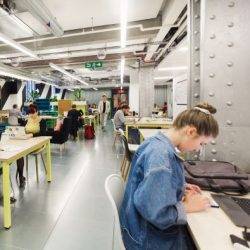July 11, 2017
Google launches initiative to humanise artificial intelligence 0
 Google has announced a new initiative that aims to improve the ways humans and artificial intelligence interact in both their personal and professional lives. Called the People + AI Research (PAIR) initiative, The programme will look to ensure that advances in machine learning and technical performance in areas such as speech recognition, image search and translation are better aligned with the needs of people. The project will bring together researchers across Google to study and redesign the ways people interact with AI systems. According to Google, the goal isn’t just to publish research but also create open source tools for experts in the field to use and completely redefine the way we think about artificial intelligence.
Google has announced a new initiative that aims to improve the ways humans and artificial intelligence interact in both their personal and professional lives. Called the People + AI Research (PAIR) initiative, The programme will look to ensure that advances in machine learning and technical performance in areas such as speech recognition, image search and translation are better aligned with the needs of people. The project will bring together researchers across Google to study and redesign the ways people interact with AI systems. According to Google, the goal isn’t just to publish research but also create open source tools for experts in the field to use and completely redefine the way we think about artificial intelligence.



































